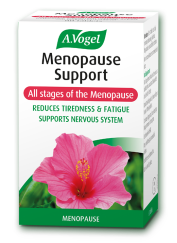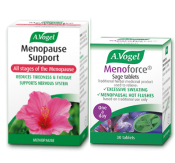What changes and challenges the menopause presents
Unbeknownst to many women, there’s a biological reason for many of the conflicted feelings they experience during their mid-life years. The menopause causes changes in brain chemistry that affect the way we think and process information.
During the female menopause, oestrogen decreases while testosterone increases, which can lead to women adopting more ‘male’ characteristics such as wanting more for themselves and becoming unsatisfied with where they are now and adopting fewer of the traditional ‘female’ characteristics, such as wanting to care for others. We undergo a seismic hormonal shift between the ages of 45 and 55. A lower level of oestrogen means that we are no longer as concerned with mothering issues, such as keeping the peace and looking after our families. An increase in testosterone makes our anger and irritability responses more like a man’s and that can be very liberating, because the temporal lobes in the brain are often more engaged, our intuition is enhanced.
Some women find they have more creative drive, as energy is focused on new areas. It’s as if our bodies are telling us it’s our turn now. For others, it’s the time when marriage and children no longer hold the appeal they once did, and this is often combined with a heady cocktail of hormones that can make you feel restless.
What impact can these have?
Many women walk out of long-term relationships in search of new excitement, and the glut of celebrity marriage breakdowns confirm that this is an unpredictable stage of life.
For example, Kristin Scott Thomas, who left her husband at 44 for a man 14 years her junior, said: ‘I’m not around to please anyone any more, and it’s a huge relief. And author Fay Weldon confirms that: ‘Women in their 50s instigate divorce because they are bored and want to be single again.’
Mid-life and the female menopause can represent insecurity about your appearance if you have begun to gain weight, especially round the middle, or notice that you have slipped into the next dress size. This can lead to lower self-esteem and a feeling of being ‘invisible’ to the rest of the world. Let’s face it, if you are one of those women who have always enjoyed a certain amount of attention from the opposite sex, this can come as quite a shock. One of my clients described it recently as feeling like living life inside the ‘cupboard under the stairs’.
This can be a very uncomfortable time if you don’t realise what is happening to your body. So the first thing to realise is that it’s normal to find yourself questioning many areas of your life. What is important is what you do with these feelings and questions.
Here are some steps you can take to overcome these feelings.
Step 1: Do more of the things that give you most pleasure in your life.
Make a list of the things that give you greatest delight – those things that uplift and inspire you to keep going. These are those special treats that make a real difference to you. Make a commitment to yourself about each one and how often you will indulge!
Step 2: Make time for your partner (if you have one)
If your relationship has gone stale, or even if it hasn’t, there are a number of things you can do to liven it up. First of all, remember the good old days. Why did you fall in love with this person? What qualities did you admire about them? Remember an event from the past when you were most happy with your partner. Imagine going back to that moment now. Run the event from start to finish in your mind and see, hear, feel, taste and smell all that occurred. Keep running movies in your mind like this until you find yourself feeling differently about your partner. Invite them to do this too.
Step 3: Do something different
Whether you have a partner or not, it’s important to continue meeting new people and to keep on learning. New experiences keep our brain cells healthy and alive. Think about those ‘new things’ you’ve talked about for years and not yet achieved. Now is the time.
Here are a few ideas:
• Start a new activity; e.g., a sport, dancing, keep-fit classes, art classes
• Travel to somewhere new. If you are on your own, go with a friend or join a singles holiday
• Learn a new language
• Get back in touch with old friends
• Join a new network or club.
Step 4: Change your surroundings
Start to spend more time outside. We know that this has huge advantages for our health. For example, taking a walk in nature every day is great exercise and can lift your spirits for the remainder of the day.
Step 5: Have a makeover
Change something about yourself – maybe your make-up, your hair, or the way that you dress. It doesn’t have to be expensive. If you can’t afford to go shopping, then invite some girlfriends round for a few drinks, and a ‘makeover’. Suggest bringing along clothes they are willing to ‘swap’ and their favourite make-up and nail varnish to share ideas about how to give each other a different look. If you have any hairdresser friends, invite them too.
To find out more about overcoming the challenges you’re facing as you go through the female menopause, just visit www.agewithattitude.co.uk, where you’ll be able to request a free copy of my new guide, “An Introduction to the Eight Attitudes Shared by Successful Mid-life Women”, packed with practical tips and inspirational advice for mid-life women. We will send you your personal copy in the post if you live in the UK and send you a pdf version if you live outside.
About Lindsay Agness
Lindsey has written four books on organizational and personal change since 2008. Her first book ‘Change Your Life with NLP’ has sold over 45,000 copies and was in the top 20 best-selling self-help books in 2009. Since then she has written Still 25 Inside for mid-life women, Change Your Business with NLP and Lose Weight with NLP. Lindsey blogs and tweets regularly with top tips for success. She is a regular contributor for top women’s magazines and has appeared on TV talking about how to set New Year’s resolutions that work. She is an international speaker and trainer of programmes on how to change. She is the founder and MD of The Change Corporation and has developed a unique personal development programme called ‘Age with Attitude’.
Visit: www.thechangecorporation.com, www.lindseyagness.com, www.agewithattitude.co.uk and follow @lindseyagness, @agewithattitude and http://agewithattitude.wordpress.com.









